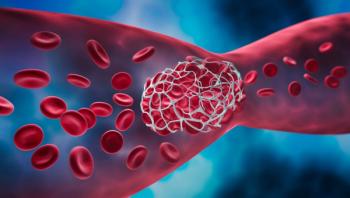
What’s in the Hemophilia B Gene Therapy Pipeline?
CSL Behring's Hemgenix may have some competition. At least three gene therapies for hemophilia B are in development.
With an anticipated price tag of $3.5 million, the price tag for Hemgenix, the first FDA-approved hemophilia B gene therapy, is high by any standard and will strain payer and patient budgets.
But the pipeline of gene therapy drugs in development suggests that Hemgenix, developed by CSL Behring, a biotech company headquartered in suburban Philadelphia, may be in for some competition that could perhaps included competition on price.
In August 2022, Belief BioMed received orphan drug status for its hemophilia B gene therapy trial drug, BBM-H901, and in April 2023, the company announced it had completed patient dosing in a phase 3 registrational clinical trial, which is used to gather evidence in support of a drug approval application.
Belief BioMed is a Shanghai-based company, and BBM-H901 is an adeno-associated virus (AAV) gene therapy intended for one-time administration and long-term effectiveness in patients ages18 and older with blood coagulation factor IX (FIX) deficiency (≤ 2 IU/dL).
In prior studies, investigators reported that 100% of patients with moderate to severe hemophilia B who received BBM-H901 (phase 1) were able to stop FIX treatment, and the annualized bleeding rate was reduced from 12 to zero. However, the study only included 10 patients,
Notably, in 2022 the New England Journal of Medicine picked up the report of a patient who received gene transfer with BBM-H901 and subsequently underwent total knee arthroplasty, a “major hemostatic challenge,” without requiring FIX infusion during the perioperative period.
There are different grades of hemophilia severity, but excessive bleeding during surgery tends to be a significant risk.
In addition to its FDA approval, Hemgenix has received conditional marketing approval in the European Union, a designation that means follow-up evidence of the drug’s performance is required to secure its place on the market.
In the pivotal HOPE-B Hemgenix clinical trial, 96% of patients no longer needed FIX replacement therapy two years after infusion. The annualized bleeding rate declined 64%.
There are at least two other hemophilia B gene therapies under development. Pfizer is developing SPK-9001 (fidanacogene elaporvovec), which in the phase 3 BENEGENE-2 study (N = 45) achieved a 71% reduction in the annualized bleeding rate following a single dose of the gene therapy and a 92% reduction in annualized infusion rate (P < .0001). These results were reported in December 2022.
Investigators reported 14 serious adverse events in seven (16%) patients.
The Pfizer drug has been granted breakthrough and orphan drug designations from the FDA, and in Europe it has priority medicine and orphan drug designations from the European Medicines Agency.
Further behind in the race to market is Freeline Therapeutics’ FLT180a, an AAV-based gene therapy candidate for patients with hemophilia B. In a phase 1/2 study readout last year, the company said a one-time dose of the drug generated a rapid increase of FIX, “reaching levels in the normal range” (93, 92 and 80 IU/dL) for 3 patients (through days 77, 56 and 36, respectively).
Newsletter
Get the latest industry news, event updates, and more from Managed healthcare Executive.























